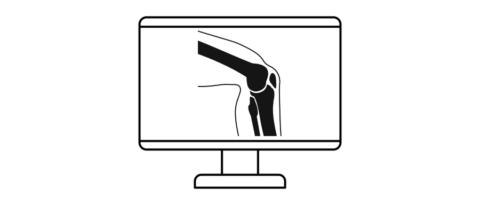Estimation of muscle forces during high-intensity change-of-direction movements with a focus on knee injury prevention.
Want to combine engineering & programming skills with your interest in sports?
Join us in Innsbruck for your master thesis in the middle of the Alps
Brief background: Change-of-direction (COD) movements are a frequent source of anterior cruciate ligament (ACL) injuries in sports such as football, rugby, or basketball. Given that at least half of ACL injuries in those sports occur without physical contact to another player, there is the assumption that many non-contact ACL injuries could be prevented if the neuromuscular system of the athletes is trained appropriately. Over the last years, we have investigated how COD movements can be influenced by neuromuscular training programs. However, it would be of interest how such training programs influence the control of movement, which is determined by the forces produced by the individual muscles of the legs. These forces ultimately determine the internal forces that act on the joint soft tissues such as the ACL and provide insight into ACL injury risk and prevention strategies. The challenge is that muscle forces cannot be measured directly but need to be estimated through musculoskeletal models and movement simulation.
Research goal: To develop a framework for the estimation of muscle forces during high-intensity COD movements based on movement data, muscle activity data, and ground reaction forces. To apply the framework to existing data and investigate how neuromuscular training influences leg muscle forces during COD movements.
This thesis is supervised by Ass. Prof. Maurice Mohr. More information can be found here.
Maria Eleni Athanasiadou, M. Sc.
Department Elektrotechnik-Elektronik-Informationstechnik (EEI)
Lehrstuhl für Autonome Systeme und Mechatronik
- E-Mail: maria.eleni.athanasiadou@fau.de
Prof. Dr. Anne Koelewijn
Department Elektrotechnik-Elektronik-Informationstechnik (EEI)
Juniorprofessur für Computational Movement Science (Stiftungsprofessur)
- Telefon: +49 9131 85-27921
- E-Mail: anne.koelewijn@fau.de
